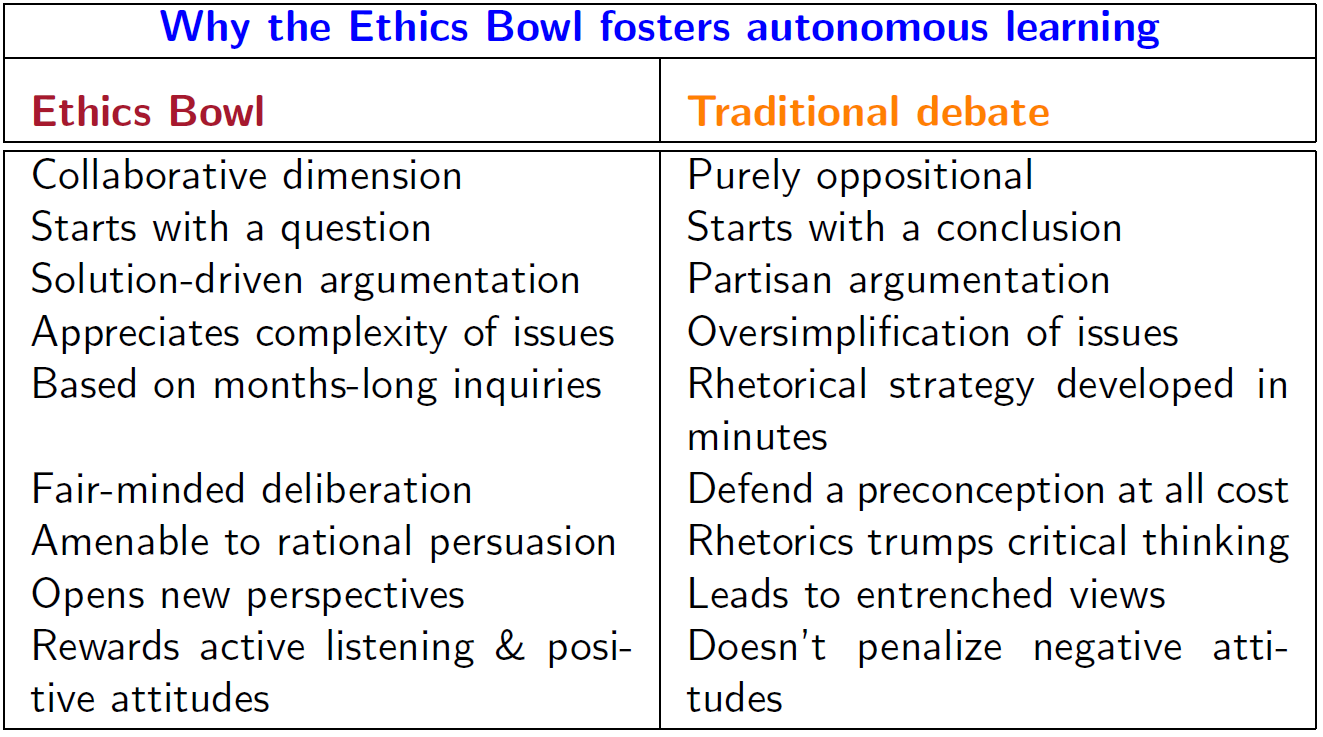What is the difference between an Ethics Bowl and a debate? An Ethics Bowl looks the same as a debate from a distance: teams of serious, prepared students take turns talking and trying to outperform another team. Ethics Bowls and debates both have distinctive structures and processes, including a formal judging process. Each contest brings together two teams of students to engage in discourse around a selected topic or issue. The key difference is that a debate focuses on skilled opposition, while the Ethics Bowl encourages dialogue and collaboration.
In a debate, students demonstrate their argumentative skills. In an Ethics Bowl, they use argumentative skills to get at the heart of the matter, as they actually see it. Participants are judged on their demonstration of relevant knowledge, articulacy, respectful collaboration, originality, intellectual improvisation, and critical thinking.
Where a debate asks students to use skills of argumentation to rigorously defend an assigned position, the Ethics Bowl asks them to engage in dialogue to learn from one another about what they actually think is worth defending. They are not just trying to do it well in the Ethics Bowl. They are trying to get it right, even if that means correcting and amending their positions as the conversation develops.
In debate, teams take positions either in support of, or in opposition to a given resolution, and their goal is to “win the argument.” There are no grey areas in a debate, and the team that presents the strongest arguments is judged to have “won.” In contrast, the starting point for an Ethics Bowl is not a resolution, but an ethically rich, open-ended issue or topic with multiple perspectives and possibilities.
Rather than take a simple “for or against” stance, each Ethics Bowl team is expected to acknowledge conflicting perspectives on the issue. Teams propose a position on how to deal with the ethical conflict considered, rather than merely taking a preferred side. During an Ethics Bowl, teams have opportunities to support and challenge each other’s thinking and perceptions. They are expected to pose questions that deepen the conversation and expand one another’s awareness of the ethical stakes and principles that animate the discussion. An overarching goal of an Ethics Bowl is to provide an arena for students to share ideas and teach each other—bringing their own experiences and insights to bear on the conversation. When this works, students can show off how well they can learn from the interaction, and skillfully integrate this learning into their final positions.


